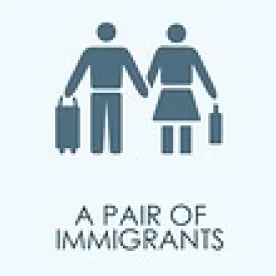The new so-called “travel ban” issued by President Trump this week by executive order, “Protecting the Nation from Foreign Terrorist Entry Into the United States,” goes into effect on March 16, 2017. The previous Executive Order 13769 of January 27, 2017, blocked by federal courts, is explicitly to be revoked on March 16, 2017, and replaced with this reissued order.
The following is a comparison of the two executive orders:
The new executive order bans for at least 90 days immigrant and nonimmigrant entries for nationals of six designated countries: Syria, Iran, Libya, Somalia, Sudan, and Yemen. However, Iraq was removed from the list and Iraqi nationals are not included. The order also calls for the establishment of a baseline screening process for visa applicants and benefits adjudication. It also requires a worldwide review by homeland security and intelligence agency directors to identify the information needed from each foreign country in order to issue a visa to a citizen of that country; additional countries could be added to the list depending upon this review.
Nationals of these six countries who had visas issued prior to January 27, 2017, are not affected by the order, which also exempts lawful permanent residents, parolees, travel document holders, dual nationals entering on a non-designated country passport, diplomats, refugees and asylees already admitted. It allows case-by-case waivers in certain situations involving undue hardships that do not pose a threat to national security and are in the national interest. However, these exempt individuals are still subject to scrutiny by Customs & Border Protection (CBP) officers at all U.S. ports of entry and preflight inspection points. It is extremely important to remember that there is no right to counsel at these ports of entry.
Additionally, the order suspends the U.S. Refugee Assistance Program for 120 days after March 16, 2017 (subject to certain case-by-case exceptions). As part of the “heightened vetting and screening procedures,” it suspends the Visa Interview Waiver Program for all visa applicants.
Specifics are given on this baseline system for vetting and they include:
- In-person interviews without exception. This occurs now routinely with limited exceptions for elderly and subsequent visa renewals for the same foreign national.
- Database of identity documents proffered by applicants. This occurs at consular post now with the issuance of visas. This may suggest that other documents maybe requested.
- Amended application forms that include questions aimed at identifying fraudulent answers and malicious intent.
- Mechanisms to ensure applicants are who they claim. Biometric data is captured now of all visa applicants and refugees so what additional mechanisms might be (iris scans, genetic screening) remains to be seen.
- Mechanisms to assess whether an applicant may commit aid or support any kind of violent, criminal or terrorist acts after entry.
- Any other appropriate means of ensuring the proper collection of all information necessary for a rigorous evaluation of all grounds of inadmissibility or grounds of denial of other immigration benefits. This provision could cause enormous delays in processing at all levels not just at consulates but also by USCIS adjudicators for benefits such as permanent residence and citizenship.
- The order also directs the Department of Homeland Security to expedite completion of a biometric entry-exit tracking system.
Given this new executive order, it is important for human resources professionals and legal departments to determine whether any personnel are affected and to review their travel limitations. This order could also affect the processing of benefits for nationals of these designated countries.




 />i
/>i


